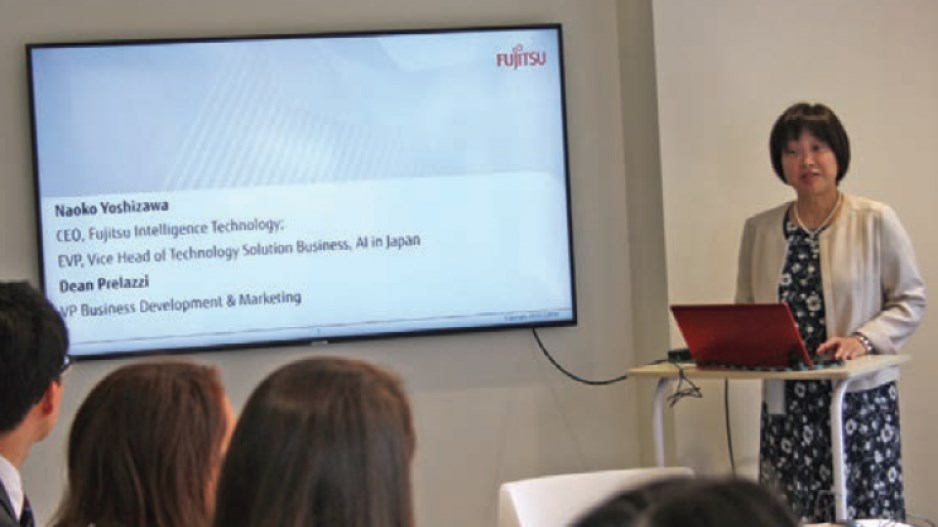Centuries ago the parrot on the shoulder of a sea captain may have been the most notable habit of a ship’s commander.
But in a bid to reduce emissions and fuel costs ahead of new maritime regulations, artificial intelligence developed in Vancouver is increasingly taking on the role of trusted companion on the high seas.
The digital division of Norwegian maritime services provider Kongsberg Gruppen AS (OTCMKTS:NSKFF) announced a partnership this past spring with Fujitsu Ltd. (TYO:6702) on AI-powered software that can optimize routes by learning the habits of captains and the history of their ships.
This comes as International Maritime Organization (IMO) regulations – dubbed IMO 2020 – go into effect next year. They will reduce the cap on ship bunker fuel sulphur content to 0.5% from 3.5%.
While the shipping industry is responsible for about 5% of global oil consumption, high sulphur levels in residual marine fuels mean the industry is responsible for roughly 40% of global oil-based sulphur emissions.
IMO 2020 leaves the industry with the option to install or retrofit scrubber systems onto vessels or switch to more expensive low-sulphur fuels.
The Vessel Fuel Optimization software, developed at Fujitsu’s new AI headquarters in Vancouver, can reduce annual fuel costs by $1.3 million per vessel, according to the Japanese company.
With as many as 50,000 ships on the seas, the cost savings could be in the billions of dollars.
“It could be personalized based on preferences of the ship captain in terms of where they definitely want to go, where they want to avoid, or previous voyages or looking at modelling of the actual ship and understanding past behaviours,” said Nicholas Lee, Fujitsu’s senior director of global AI solutions and portfolio strategy. “And that’s one of the advantages of AI. It allows you to take into account all these different features and all this historical data to provide a kind of personalized and optimized solution for specific captains.”
Robert Lewis-Manning, president of the Chamber of Shipping of BC, said his industry is fairly prepared for IMO 2020 on a global level, but he expects “unique challenges” to emerge next year at regional or sub-regional levels.
“The very proactive, sophisticated operator would be very supportive of any capability that’s going to drive their efficiencies from a cost perspective and lower [environmental] impact.”
The development of this software in Vancouver is being facilitated through Fujitsu’s digital annealer technology – what Dean Prelazzi, vice-president and head of business development at Fujitsu Intelligence Technology Ltd., described as a “quantum-inspired” digital chip.
The credit card-sized chip allows for computing speeds that exceed those of classical computers, but it operates at room temperature, unlike large quantum computers that operate at low temperatures.
“We’re at the point in the development of our society with respect to getting to the ceiling of computational power where we need more power if we’re going to solve the largest problems in the world around climate change,” Prelazzi said at the June 27 opening celebration of Fujitsu’s new AI headquarters on Burrard Street.
And for Fujitsu’s part, the launch of the new office marks the first time the world’s fourth-largest IT services provider has taken a core technology division outside of Japan.
The company invested $6 million in the November launch of the office and has increased its local team from nine to 20 workers since then.
The intent is to develop AI applications for a host of different purposes, ranging from reducing fraud at self-checkout booths to boosting the production of cars at manufacturing plants without expanding the facilities.
Last year’s push to expand in Vancouver came after Fujitsu led a $45 million Series B funding round with quantum-computing software developer 1QB Information Technologies Inc. (1QBit) in 2017.
It’s been partnering with 1QBit since then, while Vancouver-based Fujitsu Intelligence Technology CEO Naoko Yoshizawa sits on its board.
The two companies’ offices sit across the street from each other.
During the opening celebration last month, Yoshizawa recounted how her trips between Japan and Vancouver often result in the same line of questioning from the Canada Border Services Agency.
“I am always asked: ‘Fujitsu, what kind of company is that?’” she said.
“I really want to improve that situation.” •




